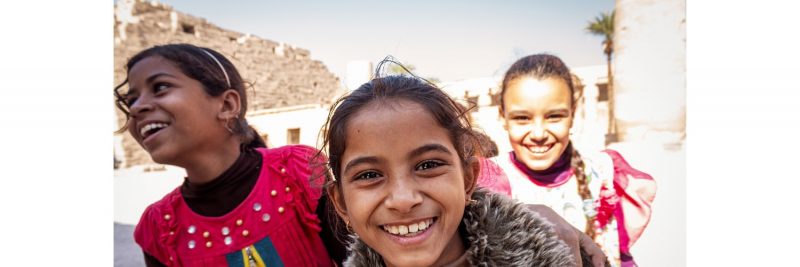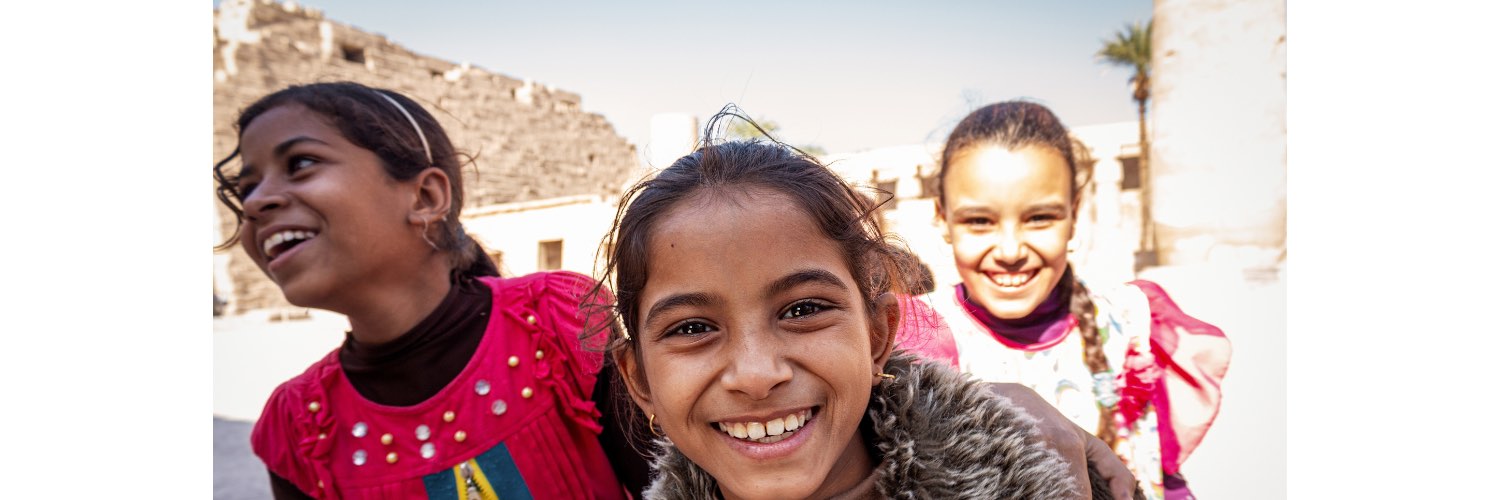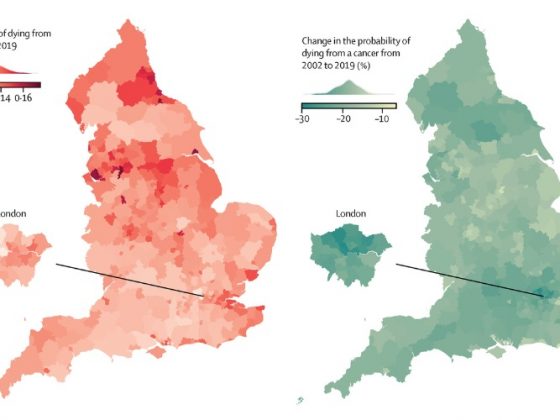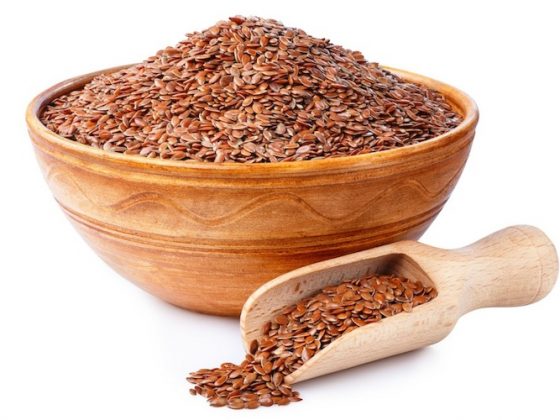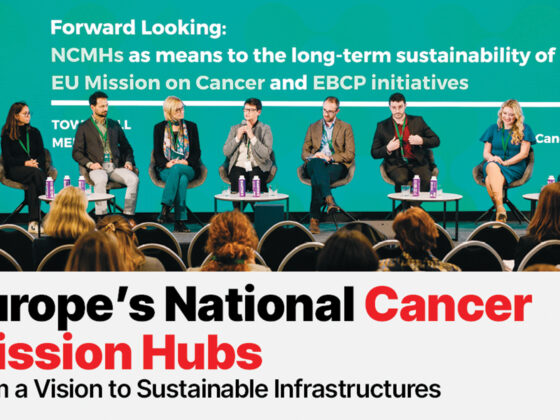Before 2021, there was little official focus on cervical cancer in Egypt. The World Health Organization’s 2021 report indicated that fewer than 1 in 10 Egyptian women had been screened for cervical cancer in the previous five years.
That was the year that gynaecologic oncology consultant Mohamed Elazab founded the Egyptian Society For Colposcopy And Cervical Pathology to enhance awareness and prevention of cervical cancer.
“There was a deeply rooted belief that cervical cancer, once known as ‘the notorious cancer’, was rare in Egypt due to societal factors like restricted sexual relationships,” Elazab told Cancerworld. “However, the HPV virus plays a crucial role, irrespective of societal beliefs.”
The society began with a three-pronged approach: training doctors, educating the public and providing free cervical screening to economically disadvantaged women. Crucially, it also provided evidence to show the risk of exposure to the HPV virus, which can lead to cervical and other cancers, is significantly higher than had generally been assumed: in a study of a thousand asymptomatic women, 14% tested positive for HPV. “This high infection rate drove us to collaborate with the Ministry of Health, ultimately leading to the inclusion of cervical cancer in the President’s early detection initiative,” said Elazab.
A national campaign
Last August (2023) saw the launch of a government-backed campaign to raise public awareness around cervical cancer, with a heavy focus on improving rates of cervical cancer screening. Led by Elazab, and sponsored by the Ministry of Social Solidarity with funding of US$ 874,000 (27 million Egyptian Pounds), the so-called ‘Journey of a Thousand Kilometres’ campaign visited 11 cities. Starting off in Alexandria – Egypt’s second city, with a population of more than 5.5 million – it moved south to Aswan and Luxor and a series of other conurbations along the Nile, culminating in early January in Cairo – one of the world’s largest cities, with a population of more than 20 million.
The campaign includes training up and deploying 10,000 social workers to educate 200 families each about cervical cancer. It also goes beyond education and awareness, with some limited investment in the healthcare capacity required to carry out screenings and treatment. “We’ve trained 200 doctors, and our target is to train a total of 350,” Elazab tells Cancerworld. So far, twenty cervical cancer clinics have been set up across the country, where women can access free screening.
Running alongside the government backed campaign, says Elazab, is a major Rotary-funded project, worth US$ 2 million, which is focused on the greater Cairo area. This project provides support for the government’s early detection agenda, with a target of providing cervical cancer screening for 10,000 women. But it includes a much stronger focus on educating women and girls about the HPV virus that causes of cervical cancer and how they can get protected. The project aims to train up healthcare workers and school administrators and staff to ensure women and girls get the information they need, and will offer vaccination to more than 30,000 girls aged 9–15.
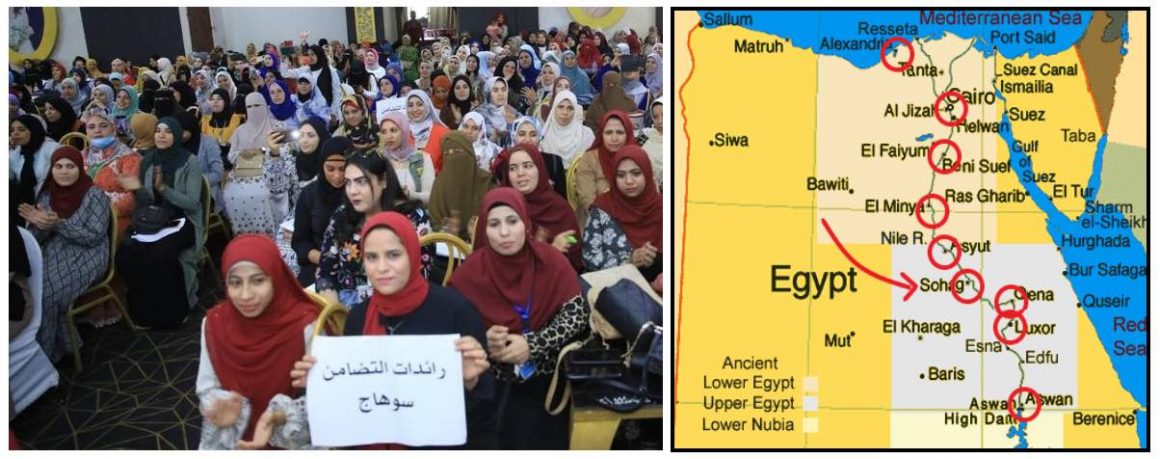
Courtesy of the Egyptian Society for Colposcopy and Cervical Pathology ©2023
Tackling the HPV conversation
The contrast between the two approaches highlights the cultural sensitivities that need to be carefully navigated to create the best conditions for getting anywhere near the 90% vaccination rate that the WHO is calling for in its cervical cancer elimination strategy.
“There’s apprehension about the social questions and debates that could arise if the vaccine were to be highlighted,” explains Adel Zaghloul, a consultant dermatologist at Cairo’s Al-Houd Al-Marsoud Hospital for Dermatology and Venereology, and former consultant to the World Health Organization on HIV and sexually transmitted infections. “Consequently, in Egypt, the conversation is largely limited to discussing cervical cancer, without delving into underlying causes like HPV.”
One approach has been to focus attention around efforts to create the world’s largest awareness ribbon. Elazab’s initiative set a new Guinness World Record in Port Said last June, by creating a 3,000 meter long cervical cancer ribbon which – with a surface area of 6,000m2 – surpassed Spain’s previous record. He has also taken pains to invite a wide range of influential and respected figures to engage with the campaign, including religious leaders from Muslim and Christian communities. “Their involvement serves a dual purpose: combating the stigma around cervical cancer and promoting national unity. We’re reaching out to all Egyptians, irrespective of their religious beliefs, to join this fight.”
We’re reaching out to all Egyptians, irrespective of their religious beliefs, to join this fight.
The HPV vaccine has been available in Egypt since 2009, for those with the motivation and money to use it. However, it is not yet included in the national vaccination schedule, and comes at a cost of around US$ 30 (950 Egyptian Pounds), making it unaffordable for many. “Despite its high cost, its availability is a good start,” Elazab says, adding that, “Like the Hepatitis C campaign, our goal is to make the HPV vaccine more affordable and a part of the wider national vaccination programme.”
Achieving that goal will be essential to reducing the population prevalence of HPV, argues Zaghloul. He points to the situation in neighbouring Libya, where the National HPV Immunization Programme was integrated into the national vaccination programme in 2013. Making HPV vaccination mandatory for teenage girls has been a key factor in its success, he argues.
In Egypt, by contrast, the HPV agenda is being driven entirely by commercial interests, says Zaghloul. PCR kits to test for HPV have been available in Egypt since 2014, he says, but they have not been adopted as part of any public detection or prevention programme. “The focus of scientific research on cervical cancer is, unfortunately, still driven by profit motives,” he says, with much of the research being sponsored by the laboratories that produce these tests and vaccines.
“It’s a triangle of interests involving the laboratories, manufacturing companies, and the doctors. This commercial aspect has overshadowed the need for sufficient funding in unbiased scientific research.”
What if it were free and routine?
Anecdotal evidence indicates that, while stigma – and assumptions about individual exposure risk – can be a barrier to HPV vaccine uptake, attitudes could change significantly were the vaccine to be incorporated into the national immunisation programme.
Cancerworld spoke to Mustafa Fahmy, a general practitioner in Cairo, and father of a 12-year-old girl. “HPV, like HIV, transmits through sexual contact. Thus, I believe vaccination isn’t required in Islamic countries,” he says. He views the vaccine as “more necessary” in European countries, due to different social norms, and says he doesn’t feel the need to vaccinate his daughter. He adds, however, that he might reconsider if the vaccine were offered for free by the Ministry of Health. “As for its importance, I am certainly convinced of it. Yet, what offers greater protection than the vaccine is her proper upbringing and her strong religious faith,” he added.
Mohamed Maher, head of obstetrics and gynaecology at Cairo’s Zohairy Hospital, and founder of the Egyptian Association of Surgical Training, told Cancerworld that he does not tend to recommend HPV vaccination to his patients, and that cost is a factor. “Our focus is primarily on convincing them about the importance of cervical screening. Given the economic challenges our patients face, it’s difficult for many to consider adopting prophylactic measures like vaccination.”
He added that, among patients presenting with symptoms necessitating urgent care, it is rare to find abnormal cervical cytology in his practice. Even in cases of genital warts – almost always caused by strains for the HPV virus – where patients come to his clinic or are referred by dermatologists for comprehensive examinations and cervical smears, the results mostly come back negative for cancer. “That said, there are instances where we observe changes in cervical cytology that warrant close monitoring and inclusion in a cervical screening programme,” he added.
If it was truly important, wouldn’t it already be part of the national vaccine calendar?
Lack of government support for HPV vaccination would also seem to be sending negative signals about its value to women and girls. When asked about her views on the vaccine, Yasmin Mohamad, a 17-year-old from the city of Kafr El Sheikh in the Nile Delta, currently in her final year of schooling, told Cancerworld she had never heard of the vaccine, and when she asked her friends, they said they hadn’t heard of it either. On the subject of whether she would pay for the vaccine if she were aware of its importance, she sounded sceptical: “It seems costly to me. But really, if it was truly important, wouldn’t it already be part of the national vaccine calendar? It makes me question how essential it really is.”
Ensuring Yasmin, her friends, and the millions more like them get the information they need to stay safe is a key goal of the Journey of a Thousand Kilometres campaign, says Elazab. “Our initiatives are more than medical endeavours; they represent a movement towards societal change, ensuring that every Egyptian woman is informed, empowered, and protected against cervical cancer.” Successfully navigating the tricky path of destigmatising cervical cancer and cervical cancer screening, while building understanding about the cause of the disease and how to protect against it, may be critical to achieving that goal.

